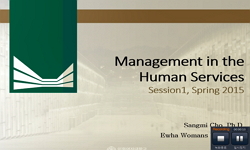Under the more current paradigm of protected area management, which takes a more integrated approach to conservation and development opportunities, residents are now seen as co-managers of protected areas. Through the Social Representation Theory, Rat...
http://chineseinput.net/에서 pinyin(병음)방식으로 중국어를 변환할 수 있습니다.
변환된 중국어를 복사하여 사용하시면 됩니다.
- 中文 을 입력하시려면 zhongwen을 입력하시고 space를누르시면됩니다.
- 北京 을 입력하시려면 beijing을 입력하시고 space를 누르시면 됩니다.


Analyzing residents’ preferences to ecotourism impacts using simple additive weighting: The case of Mount Rinjani National Park, Indonesia
한글로보기https://www.riss.kr/link?id=A109007635
-
저자
Siolemba Patiro Shine Pintor (Universitas Terbuka, Indonesia) ; Hendarto Kresno Agus (Center for Research and Development of Forest Plant Seed Technology (BP2TPTH), Development and Innovation Agency, Ministry of Environment and Forestry Republic of Indonesia, Bogor, Indonesia) ; Parmono V. Rachmadi (Universitas Katolik Atmajaya Jakata, Indonesia) ; Wibowo Lukas Rumboko (Badan Riset dan Inovasi Nasional, Indonesia) ; Suka Aneka Prawesti (Badan Standardisasi Instrumen Lingkungan Hidup dan Kehutanan, Indonesia) ; Abdurakhman Abdurakhman (Universitas Gadjah Mada, Indonesia) ; Pramusita Arina (Universitas Gadjah Mada, Indonesia) ; Al Hasan Rubangi (Badan Riset dan Inovasi Nasional, Indonesia) ; Yumantoko Yumantoko (Badan Riset dan Inovasi Nasional, Indonesia) ; Nandini Ryke (Badan Riset dan Inovasi Nasional, Indonesia) ; Susila I Wayan Widhana (Badan Riset dan Inovasi Nasional, Indonesia) ; Desmiwati Desmiwati (Badan Riset dan Inovasi Nasional, Indonesia) ; Wisudayati Tri Astuti (Center for Research and Development of Forest Plant Seed Technology (BP2TPTH), Development and Innovation Agency, Ministry of Environment and Forestry Republic of Indonesia, Bogor, Indonesia) ; Njurumana Gerson Ndawa (Badan Riset dan Inovasi Nasional, Indonesia) ; Yuniati Dhany (Badan Riset dan Inovasi Nasional, Indonesia) ; Pratama Yudha Satria Aji (Institut Teknologi Sepuluh Nopember, Indonesia) ; Yatma Tri Dasta Nursehaneka (Balai Taman Nasional Gunung Rinjani, Indonesia)
- 발행기관
- 학술지명
- 권호사항
-
발행연도
2024
-
작성언어
English
- 주제어
-
등재정보
KCI등재,SCOPUS,ESCI
-
자료형태
학술저널
-
수록면
25-37(13쪽)
- DOI식별코드
- 제공처
-
0
상세조회 -
0
다운로드
부가정보
다국어 초록 (Multilingual Abstract)
Under the more current paradigm of protected area management, which takes a more integrated approach to conservation and development opportunities, residents are now seen as co-managers of protected areas. Through the Social Representation Theory, Rational Choice Theory, and Social Identity Theory, this study aims to identify the economic, socio-cultural, and environmental impacts of ecotourism perceived by the residents and their priorities/ preferences in Mount Rinjani National Park (MNRP). This study employed the qualitative method (phase 1) and the quantitative method (phase 2). Phase 1 collected primary data through focus group discussion (FGD). The FGD was conducted with 7 participants who were chosen using judgment sampling. Data in the FGD were transcribed and analyzed with content analysis. Results of the analysis in phase 1 were utilized as the basis for analysis in phase 2. Phase 2 collected the data from a survey. Due to the homogeneity of the population, 30 respondents were chosen as the sample using purposive sampling. Data of the survey were analyzed with simple additive weighting. The results showed that the highest preference of the residents was economic impacts, followed by the social-cultural and environmental impacts. From the perspective of Social Representation Theory, it can explain how different people understand and respond to social issues in a community. From the perspective of Rational Choice Theory and Social Identity Theory, although economic impacts rank first, social interest comes first instead of individual interest. Finally, the results of this study can be used as a guide for both the national government (MNRP) and local government (the Culture and Tourism Board) regard to how residents behave towards ecotourism development.
동일학술지(권/호) 다른 논문
-
Total Phenolic and Starch Content of Arrowroot Tuber in The Agroforestry System
- 한국산림과학회
- Octavia Dona
- 2024
- KCI등재,SCOPUS,ESCI
-
Natural and anthropogenic impacts on mangrove carbon dynamics: a systematic review protocol
- 한국산림과학회
- Gilang Qur’ani Citra
- 2024
- KCI등재,SCOPUS,ESCI
-
Productivity and Costs of Mechanized Skidding operations at Sao Hill Forest Plantation, Tanzania
- 한국산림과학회
- Temba Gilberth Prosper
- 2024
- KCI등재,SCOPUS,ESCI
-
- 한국산림과학회
- Abrha Haftu
- 2024
- KCI등재,SCOPUS,ESCI




 KCI
KCI


